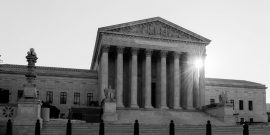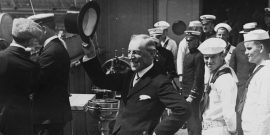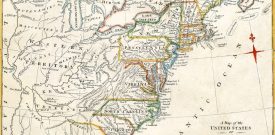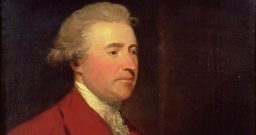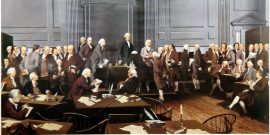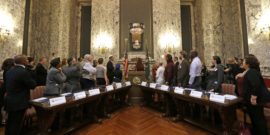Willie Nelson's incredible musical legacy was built at the nexus of tradition and creative innovation.
John G. Grove
The recent “Statement of Principles” reasserts important conservative commitments. But we should make sure to go beyond Manifesto Conservatism.
Not only does a politicized religion fail to carry with it the virtues of the genuine article, it actively encourages the opposite vices.
In The Godfather, we see the unceasing quest for power destroy the very thing it was meant to protect.
In its turn to history, the Court continues to look for national, judicially enforceable answers to questions on which the Constitution offers silence.
The Ciceronian Society looks to reestablish a conservative community rooted in friendship rather than the pursuit of political goals.
Roger Scruton championed the “ways of peaceful association” that mold us as moral beings and free us to appreciate the higher joys that this life offers.
If all you want for Christmas is constitutional self-government, here are some ideas that would make the republic merry and bright—if only in our dreams.
The power to guarantee turns quickly into a power to control.
Robert Nisbet warned against those who claim to promote freedom and community, but are really only interested in grasping a power that destroys both.
The Constitution’s federalism was not a side concern, not a means to an end, not an unfortunate compromise with stubborn reality—it was the main event.
Aside from the oft-celebrated advantages of competition, a choice-based educational system could have less tangible but important cultural benefits.
Many of the traditions that Burke defended were salutary restraints on power. Conservatives shouldn't forget that America has such an inheritance, too.
Burke saw that, far from being capable of grounding politics, reason itself needed to be grounded in the experience of mankind.
The decay of the American republic ought to prompt a renewed zeal for the recovery of constitutional limits, not a grasp for the levers of judicial power.
If America’s Constitution needs its own “Bible,” you could do much worse than The Federalist. But Gary Gregg and Aaron Coleman do us one better.
In an age of demagoguery, judges and justices—members of a highly credentialed elite dealing with complex questions—are perfect targets.
Contrary to the numbers games of today's majoritarians, America's federal republic reflects not a trace of national, numerical democracy.
The circumstances surrounding the Supreme Court vacancy demonstrate that many have rejected "the immutable fairness of following the law."
Programs like Boys State can recreate only the game of politics. But that game must be premised on a deeper reality.
The development of American politics can be understood as a centuries-long grappling with two competing but equally essential conceptions of "the people."
While there is considerable flexibility for evolution in the presidential selection system, that flexibility has its limits—the electors must elect.
Despite Calhoun’s flaws, he was able to use his long career in tumultuous times to develop rare insight into the nature of constitutional government.
Remote voting and a more “transparent” Court would likely lead in directions the founders explicitly sought to avoid.
Rather than focus on what set of ideas America must revive or reject, we might focus instead on the concrete realities which define our political life.
John G. Grove is managing editor of Law & Liberty. He previously taught political science at Lincoln Memorial University.




